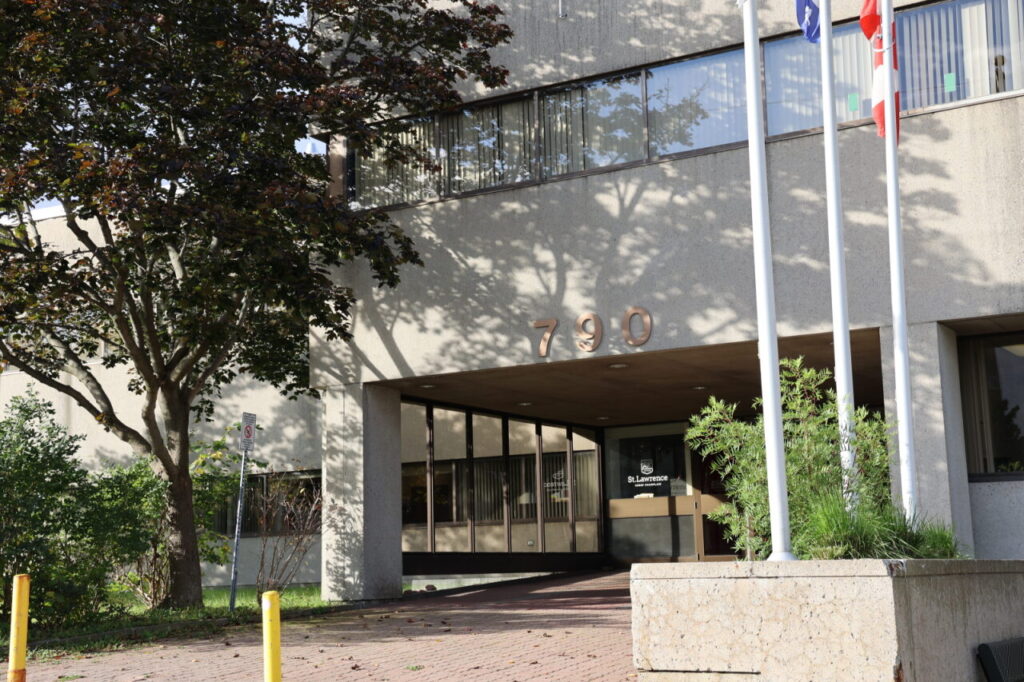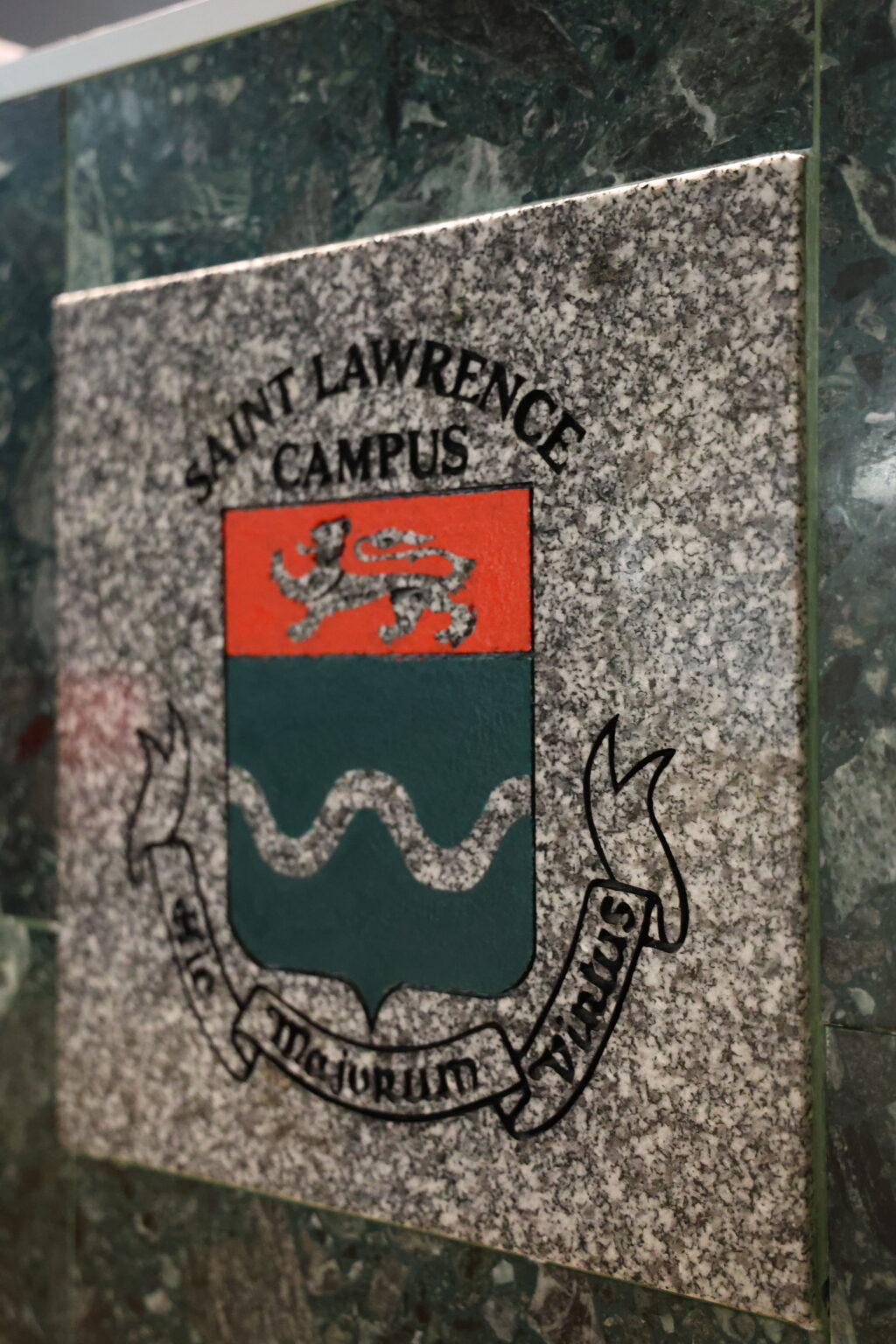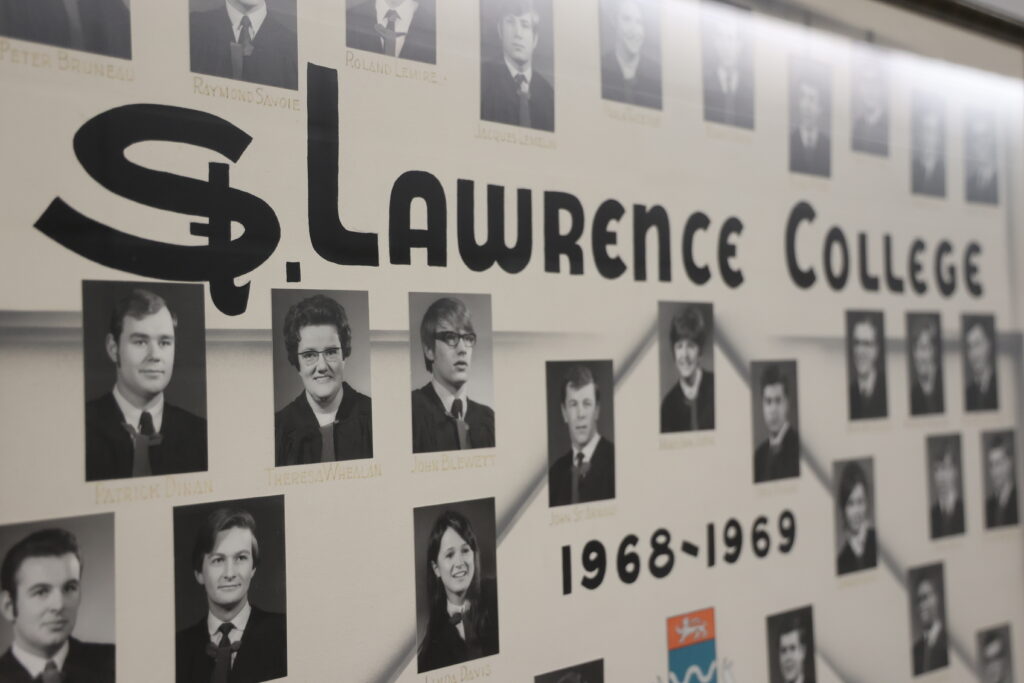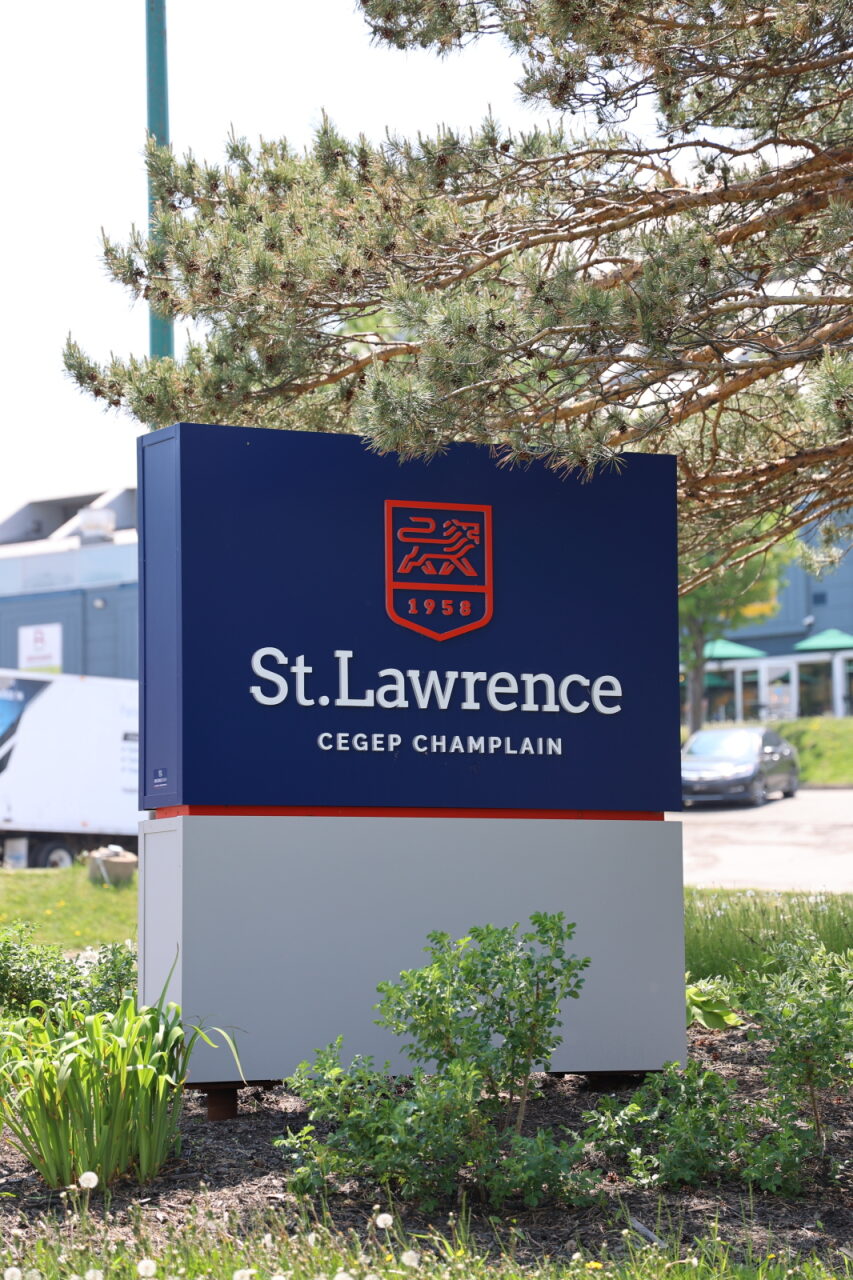History
We’re a small, tight-knit college community embedded in the similarly small anglophone community of Quebec City. In our nearly 70-year history, we`ve been through many changes. Today, we’re proud of our legacy and of the work we do each day to provide our students with the best possible English education in Quebec City.

Our Beginnings
St. Lawrence was founded as a private boys’ school in Sainte-Foy in 1958 by Cardinal Maurice Roy. It was located at the Grand Séminaire on the Université Laval campus. As a classical college affiliated with Laval University, St. Lawrence offered an eight-year program of high school and college studies leading to a Bachelor of Arts degree. St. Lawrence became a coeducational institution when it accepted the female students of neighbouring Marymount College at its closing in 1965.
With the changes to the education system in Québec in the early 1970s, the high school and B.A. programs at St. Lawrence were phased out. As a member of the newly created Québec CEGEP system, St. Lawrence was first affiliated with Cégep de Sainte-Foy and then with Vanier College in Montreal. On July 1, 1972, St. Lawrence became a constituent of Champlain Regional College. For nearly 70 years, St. Lawrence has taken the best of its traditions and combined them with the innovations of the day to educate students to face their future with confidence.

67 Years of History

| 1958 | St. Lawrence is founded by Cardinal Maurice Roy as a private boys’ school |
| 1964 | The college moves to a location on avenue Wolfe |
| 1965 | St. Lawrence becomes co-ed, accepting female students following the closing of Marymount College |
| 1970s | St. Lawrence becomes a CEGEP |
| 1972 | The college moves to a location on rue Jean-Dequen |
| July 1st, 1972 | St. Lawrence becomes a constituent of Champlain Regional College |
| 1975 | The Lion mascot was celebrated through the graduating class’s gift of a Lion painting to the college. |
| 1977 | The college moves to 790 Av. Nérée-Tremblay |
| 2016 | The new Student Centre, including an atrium, club offices and an auditorium, is added as an extension to the West side of the school |
| 2019 | A rebranding project gives St. Lawrence its updated logo and new college colours: red and blue |




